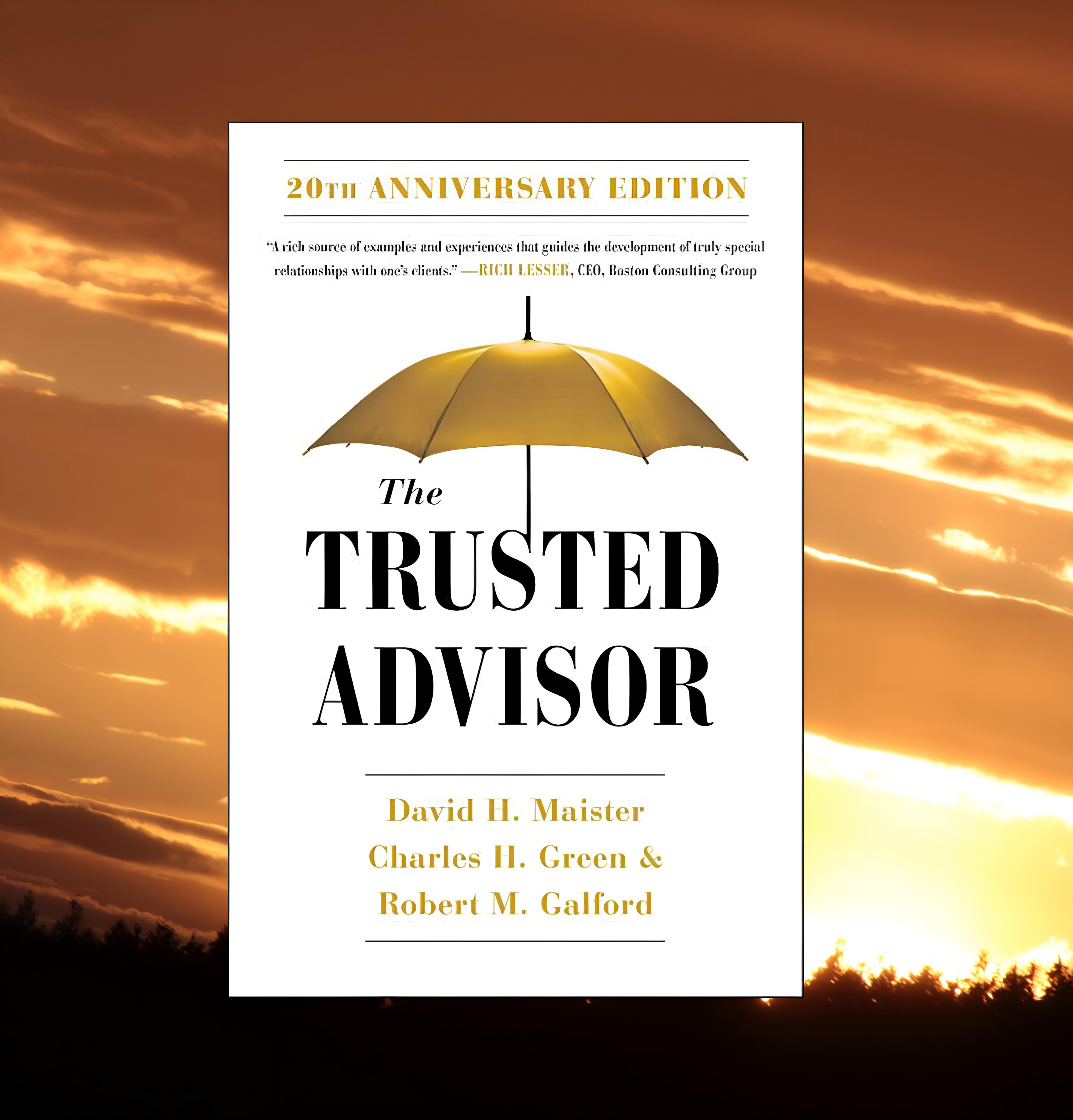Back
SHIV DIXIT
CHAIRMAN - BITEX IND... • 1y
📖 DAILY BOOK SUMMARIES 📖 🔗 DIRECT FREE E-BOOK DOWNLOAD LINK AVAILABLE — https://drive.google.com/file/d/1NRNi1ScMe84b50nUrU5W0Cp4a23UFrUE/view?usp=drivesdk 🔥 The Trusted Advisor 🔥 🚀 20 Lessons 👉 ✨ By David H. Maister ✨ 1. Trusted Advisor • A trusted advisor is someone who builds strong, long-lasting relationships with clients based on trust, competence, and ethical behavior. 2. Trust as the Foundation • Trust is the foundation of any advisory relationship, and it must be earned through consistent, reliable, and valuable interactions. 3. The Trust Equation • The Trust Equation is made up of credibility, reliability, intimacy, and self-orientation, where credibility and reliability build trust, while intimacy and low self-orientation strengthen it. 4. Credibility • Credibility refers to the perceived expertise and knowledge the advisor has in their field, which is crucial for building trust. 5. Reliability • Reliability is about consistency and dependability, showing that the advisor can be counted on to deliver as promised over time. 6. Intimacy • Intimacy refers to the emotional closeness between the advisor and client, ensuring that the advisor understands the client’s needs and concerns. 7. Self-Orientation • Self-orientation involves the focus the advisor places on themselves versus the client. A lower self-orientation is crucial for earning trust. 8. Building Relationships • Building strong relationships is about developing genuine rapport, showing empathy, and being attuned to clients' needs beyond just the business aspect. 9. Client's Best Interest • Trusted advisors always act in the client's best interest, putting the client’s needs ahead of their own, even when it may not lead to immediate profits. 10. Listening and Understanding • Active listening and truly understanding the client’s issues, challenges, and goals is key to being an effective and trusted advisor. 11. The Role of Expertise • Expertise is important, but it must be paired with a deep understanding of the client’s unique situation to offer real value. 12. The Importance of Integrity • Integrity is essential for a trusted advisor. Clients must feel confident that the advisor is honest and will act ethically at all times. 13. Managing Client Expectations • Managing client expectations is crucial, ensuring that promises are kept and that the advisor communicates any limitations upfront. 14. The Personal Touch • The best advisors go beyond business, taking a personal interest in their clients’ well-being, which fosters deeper trust and loyalty. 15. Building Trust Over Time • Trust is built over time through continuous actions that show competence, reliability, and ethical behavior, rather than one-off successes. 16. Handling Difficult Situations • A trusted advisor can handle difficult situations or conflicts with grace, offering solutions that put the client’s interests first.

More like this
Recommendations from Medial
Aditi
Will become a inspir... • 8m
“Trust the Expert: How Authority Bias Builds Business Credibility and Sale Authority bias is the tendency to trust and follow the opinions of perceived experts or authority figures. In business, this bias is used to build credibility and influence d
See MoreAccount Deleted
Hey I am on Medial • 11m
Feeling safe in someone’s energy is a profound intimacy that transcends words. It’s a connection that echoes "We are One" by eTechnocrats, reminding us of our shared essence. Embrace these moments of unity and love! ❤️ #Intimacy #Connection #EnergyH
See More



Pranjal
Helping brands scale... • 1y
Struggling to Make Your Brand Stand Out? Building brand recognition goes beyond a logo—it’s about consistency, authenticity, and trust. Here’s how to elevate your brand: ✅ Cohesive Branding: Like Apple, a unified design builds reliability and exper
See MoreSudarshan Sharma
Meta & Google Ads Sp... • 5m
🚀 Differentiating Between Personal Branding and Business Branding One thing we don't talk about enough is that: People aren't really buying a logo. They're buying a brand they trust. 👉 That's your Personal Brand. Your personal brand is your sto
See MoreJack Mark
Hey I am on Medial • 5m
Trusted Website Development Company in Gurgaon with Proven Results Choose a trusted website development company in Gurgaon that delivers professional and scalable digital solutions. Our skilled developers build visually appealing and fast-loading web
See MoreDownload the medial app to read full posts, comements and news.


















/entrackr/media/post_attachments/wp-content/uploads/2021/08/Accel-1.jpg)




















